

DNA Day Essay Contest
Ages: High School
Type: Submission
Scope: International
Evelyn Mantegani [email protected] 301-634-7351
Participate
National DNA Day commemorates the completion of the Human Genome Project in April 2003 and the discovery of the double helix of DNA in 1953. Teachers and students around the world are encouraged to celebrate by participating in the American Society of Human Genetics' (ASHG) annual DNA Day Essay Contest! The question each year aims to cover a current topic in genetics that may not be covered in biology class. Students are encouraged to work with their science and language arts teachers. Essays should be 750 words maximum. Winners and honorable mentions are announced on Friday, April 24, 2020.
This contest is open to students in grades 9-12 worldwide and asks students to examine, question, and reflect on important concepts in genetics. Essays are expected to be well-reasoned arguments indicative of a depth of understanding of the concepts related to the essay question.
2020 Question
- Essays must be the product of an individual student's work; group submissions are not permitted .
- All essays must be written in English and are limited to 750 words . Word count includes in-text citations, but does not include reference lists.
- Essay titles are optional and will be counted towards the word limit.
- Word count is best determined by Microsoft Word's count. The submission page will give an official word count when submitters enter the essay.
- Essays should not include a student's name.
- Essays must include at least one reference . References must be clearly documented with both in-text citations and in the references list (the reference list should be separately entered into the "References" section of the submission page). Students may use either APA or MLA style citations. There is no restriction on how many references students may use. However, please keep in mind that students should avoid having too many references, as we want to know the student's opinion on the question and not the opinion of the student's sources.
- Low quality sources = Wikipedia.
- High quality sources = Research journals (for example, from PubMed )
Website: http://www.ashg.org/education/dnaday.shtml
Managing Organization: American Society of Human Genetics
Contact: Evelyn Mantegani [email protected] 301-634-7351
Eligibility: Essays that will be accepted must be submitted by a teacher and written by high school students (grades 9-12) in the U.S. and internationally.
Signup Newsletter
Sign me up for the newsletter!

The Institute of Competition Sciences (ICS) was founded in 2012 to help transform learning into an exciting challenge for all students. We exist to support students in realizing the full potential of their future.
Quick Links
- Competitions
- Privacy Policy
- Terms and Conditions
Connect with us on social media

Copyright © 2024 Institute of Competition Sciences. All rights reserved.
Login or sign up to be automatically entered into our next $10,000 scholarship giveaway
Get Started
- College Search
- College Search Map
- Graduate Programs
- Featured Colleges
Scholarship Search
- Lists & Rankings
- User Resources
Articles & Advice
- All Categories
- Ask the Experts
- Campus Visits
- Catholic Colleges and Universities
- Christian Colleges and Universities
- College Admission
- College Athletics
- College Diversity
- Counselors and Consultants
- Education and Teaching
- Financial Aid
- Graduate School
- Health and Medicine
- International Students
- Internships and Careers
- Majors and Academics
- Performing and Visual Arts
- Public Colleges and Universities
- Science and Engineering
- Student Life
- Transfer Students
- Why CollegeXpress
- $10,000 Scholarship
- CollegeXpress Store
- Corporate Website
- Terms of Use
- Privacy Policy
- CA and EU Privacy Policy
DNA Day Essay Contest
Sponsored by: American Society of Human Genetics
Apply Online
Applicant must be a high school student and submit an essay based on the given prompt reflecting on an important concept in genetics.
Contact Information
Evelyn Mantegani Manager, Public Engagement, Marketing and Communications American Society of Human Genetics 6120 Executive Boulevard Rockville, MD 20852 United States
Official website
Search More Scholarships
Join our community of over 5 million students.
CollegeXpress has everything you need to simplify your college search, get connected to schools, and find your perfect fit.
FEATURED SCHOLARSHIPS
It's fast, easy, and puts you in the running for our $10,000 scholarship!
Personalize your experience on CollegeXpress.
With this information, we'll display content relevant to your interests. By subscribing, you agree to receive CollegeXpress emails and to make your information available to colleges, scholarship programs, and other companies that have relevant/related offers.
Already have an account?
Log in to be directly connected to
Not a CollegeXpress user?
Don't want to register.
Provide your information below to connect with

- News Releases
ASHG hosts fourth annual DNA Day essay contest, supports genetics education efforts
The American Society of Human Genetics announces high school student essay contest winners in celebration of National DNA Day on April 24, 2009
American Society of Human Genetics
BETHESDA, MD – April 24, 2009 – In celebration of National DNA Day, the American Society of Human Genetics (ASHG) and the Genetics Society of America (GSA) have joined with corporate sponsor Life Technologies Corporation (NASDAQ:LIFE) through its Life Technologies™ Foundation, to educate students and teachers about important concepts in genetic science by hosting the fourth annual National DNA Day Essay Contest.
Celebrated annually on April 25, National DNA Day commemorates the discovery of DNA's double helix and the completion of the Human Genome Project in April 2003. The essay contest is just one of the many DNA Day activities designed to excite students about human genetics and help them gain a better understanding of the underlying scientific principles and research methods.
"ASHG's National DNA Day Essay Contest is an educational initiative that brings students and their teachers together with some of the best geneticists in the world," said Joann Boughman, Ph.D., executive vice president of ASHG. "Our organization coordinates the essay contest and other educational activities because, as the largest society for genetics professionals, we feel that it is important for us to raise awareness about the value of genetics education and research. ASHG is also committed to sharing a broader understanding of human genetics by reaching out to students in science classrooms around the world, in an effort to increase their excitement about and interest in the field."
ASHG's annual DNA Day Essay Contest challenges science students in grades 9-12 to question and reflect on key concepts of human genetics by writing an original essay that provides a substantive, well-reasoned argument about the genetic basis of various traits, including those related to health and disease. This year, ASHG received a total of 300 essay submissions from high school students in the U.S., Canada, and other countries, such as China, Bangladesh, Pakistan and Ghana. More than 150 geneticists from ASHG and GSA volunteered to judge the students' essays on the basis of critical thinking, scientific accuracy, creativity and organization.
"Most genetics units in high school contain little or no information about complex traits – which are those influenced by many different genes and the environment," said Michael Dougherty, Ph.D., Director of Education for ASHG. "This year's essay questions gave teachers a reason to talk about common diseases, such as heart disease, diabetes, cancer and schizophrenia, which are the subject of much current research in genomics."
Today, in celebration of National DNA Day, ASHG and corporate sponsor Life Technologies Foundation announced the winners of the fourth annual DNA Day Essay Contest during the live online DNA Day 2009 Chatroom sponsored by the National Human Genome Research Institute of the National Institutes of Health (NHGRI/NIH). The students who submitted the top responses for each of the two essay contest questions were awarded $400; second place winners were awarded $250; and third place winners, $150. Teachers of the students who won first place prizes will each receive $2,000 to purchase new laboratory equipment for their science classrooms.
2009 NATIONAL DNA DAY ESSAY CONTEST STUDENT WINNERS:
High school students in grades 9-12 were invited to submit written essays on one of the following two questions. The first essay question asked students to explain the relationship between genes and traits. More specifically, students had to explain whether all inherited traits come in only two distinct varieties, or whether some traits have a more complex pattern of inheritance.
For the first essay question, ASHG and GSA judges awarded first place to Mehera Emrich, a senior from Acalanes High School in Lafayette, Calif. Emrich's essay explained the relationship between genes and traits, and she impressed the geneticist judges by contrasting modern scientific understanding with John Locke's philosophical construct that humans are born as a 'tabula rasa' or 'blank slate' that is 'filled in' by each person's environment. In her essay, Emrich acknowledged the importance of both heredity and the environment when she wrote, "Mendel greatly underestimated genetic complexity, while Locke grossly overestimated the impact of environmental influences on human development." She concluded her essay by stating that, "Perhaps it would be more correct to say that genes, by creating a living organism, provide a slate that has already been written on. With the passage of time the environment edits this writing, modifying the wording but maintaining the essence of the original document."
ASHG and GSA awarded second place to Laura Molina, a sophomore from Viera High School in Viera, Fla., for her answer to the first essay question. In her essay, Molina provided an insightful description of a variety of inheritance patterns that go beyond the 'either/or' types studied by Mendel. In her own words, Molina wrote that, "Not all traits come in just two varieties. Modes of inheritance like co-dominance, incomplete dominance, and epistasis involve intricate interactions between the expression of multiple alleles and/or genes that often result in the existence of three or more varieties of traits, such as human blood markers and flower color." Molina concluded her essay by affirming that, "Future investigation will probably uncover even more complex modes of inheritance and relationships between genes and traits that will improve our [current] understanding of genetics."
For the first essay contest question, ASHG and GSA awarded third place to Stephen Wang, a junior at the Charter School of Wilmington in Wilmington, Del., for his insightful description of the relationship between genes and traits. In his prize-winning essay, explained that, "Geneticists have discovered phenomena…showing that more than two variations are possible for any one given trait." Wang concluded his essay by noting that, "Therefore, not all traits for all species come in only two varieties. Often, these traits can come in 3 or 4, [or] maybe more variations, each the result of a complex genetic combination."
For the second of the two essay contest questions, the ASHG and GSA judges awarded first place to Michael Kovacs, a senior from Winston Churchill High School in Potomac, Md., for his response. In his essay, Kovacs wrote about obesity, using this health condition as an example to illustrate the complexity of the genetic and environmental interactions that can contribute to disease. In his own words, "Obesity, like so many other health risks, is the sum of a variety of conditions that add up to a life-threatening illness." Kovacs then described some of these 'conditions' or 'factors' that can cause disease. He concluded his essay with the following astute observation, stating that, "We cannot take the reductionist approach to health and disease by assigning just a single cause to a single problem. Genetics, infections, and the environment play some role in most diseases, and by understanding how they all work together to create so serious a problem as obesity, we can potentially provide better methods of treatment, prevention, and control of these diseases."
Jennifer Li, a junior at Enloe High School in Raleigh, N.C., won second place for her response to the second of the two essay contest questions. In her cleverly titled essay, "The Intricacy of Human Diseases: From the Pea to Phenylketonuria," Li adeptly illustrated her understanding of how certain environmental factors can influence human health and disease. She did so by describing the surprising complexity of phenylketonuria (or PKU), which is a rare, inherited single-gene disorder that affects a person's ability to properly metabolize the amino acid phenylalanine and, if left untreated, can cause problems with brain development that could lead to mental retardation. In her essay, Li gave a perceptive description of the complex nature of human disease when she explained that, "In general, human diseases are the result of manifold and intertwining factors." Li concluded her essay with the following observation that, "[An] intricate web of multiple genetic and environmental factors all play a role in disease development."
Sharon Hartzell, a junior from Chenango Forks High School in Binghamton, N.Y., won third place for her response to the second essay question. In her essay, Hartzell explained the delicate balance between genes and environment to convey an accurate understanding of the causes of human health and disease. In her own words, Hartzell described that, "Human disease is influenced in its transmission and in its manifestation by both our internal and external environments...Both heritable and infectious diseases are strongly influenced by both genetics and the external environment, and an understanding of this relationship is crucial to human health." Hartzell concluded her essay by stating that, "Those at risk for heritable diseases strongly influenced by environmental factors, such as cancer and heart disease, can cultivate healthy habits to prevent the onset of disease."
For more information about the National DNA Day Essay Contest, please visit the education section of ASHG's Web site at: http://www.ashg.org/education/dnaday_winners_2009.shtml
About National DNA Day National DNA Day occurs annually on April 25 to mark the 50th anniversary of the discovery of DNA's double helix, and to commemorate the completion of the Human Genome Project in April 2003. Genetics researchers, clinicians, hospitals, professional organizations, private companies, advocates, academicians and schools across the U.S. host various activities and events on National DNA Day in a coordinated effort to engage and inform students about genomics, and inspire the next generation of scientists who will use genetics research to benefit personal and public health. For more information about National DNA Day, please visit: http://www.ashg.org/education .
About The American Society of Human Genetics Founded in 1948, the American Society of Human Genetics (ASHG) is the primary professional membership organization for human genetics specialists worldwide. The nearly 8,000 members of ASHG include researchers, academicians, clinicians, laboratory practice professionals, genetic counselors, nurses and others involved in or with a special interest in human genetics. The Society's mission is to serve research scientists, health professionals and the public by providing forums to: (1) share research results through the Society's Annual Meeting and in the American Journal of Human Genetics (AJHG); (2) advance genetic research by advocating for research support; (3) educate current and future genetics professionals, health care providers, advocates, policymakers, educators, students and the general public about all aspects of human genetics; and (4) promote genetic services and support responsible social and scientific policies. For more information about ASHG, please visit: http://www.ashg.org .
About The Genetics Society of America Founded in 1931, The Genetics Society of America (GSA) includes over 4,000 scientists and educators interested in the field of genetics. The Society promotes the communication of advances in genetics through publication of the journal GENETICS, and by sponsoring scientific meetings focused on key organisms widely used in genetic research. The GSA supports genetic science education for students of all ages and advocates for genetic science research funding via the Joint Steering Committee, an organization of several scientific societies that informs Congress about the importance of scientific research. For more information, please visit: http://www.genetics-gsa.org .
About Life Technologies Life Technologies Corporation (NASDAQ:LIFE) is a global biotechnology tools company dedicated to improving the human condition. Our systems, consumables and services enable researchers to accelerate scientific exploration, driving to discoveries and developments that make life even better. Life Technologies customers do their work across the biological spectrum, working to advance personalized medicine, regenerative science, molecular diagnostics, agricultural and environmental research, and 21st century forensics. Life Technologies had sales of more than $3 billion in 2008, employs approximately 9,500 people, has a presence in more than 100 countries, and possesses a rapidly growing intellectual property estate of approximately 3,600 patents and exclusive licenses. Life Technologies was created by the combination of Invitrogen Corporation and Applied Biosystems Inc. For more information on how we are making a difference please visit our website: http://www.lifetechnologies.com .
Disclaimer: AAAS and EurekAlert! are not responsible for the accuracy of news releases posted to EurekAlert! by contributing institutions or for the use of any information through the EurekAlert system.
+1 (603) 932 7897

Annual DNA Day Essay Contest
- Last modified 2024-01-25
- Published on 2021-05-13

Competition Details
Introduction : Annual DNA Day Essay Contest is hosted by the American Society of Human Genetics, in support of National DNA Day. DNA Day commemorates the completion of the Human Genome Project in April 2003 and the discovery of the double helix of DNA in 1953. In celebration of DNA Day, the American Society of Human Genetics hosts Annual DNA Day Essay Contest.
2024 Question:
Many human diseases have a genetic component. Some diseases result from a change in a single gene or even multiple genes. Yet, many diseases are complex and stem from an interaction between genes and the environment. Environmental factors may include chemicals in the air or water, nutrition, microbes, ultraviolet radiation from the sun and social context. Provide an example of how the interplay of genetics and environment can shape human health.
Submission Rule: Essays must be in English and no more than 750 words. Word count includes in-text citations, but not reference lists. Essays are expected to be well-reasoned arguments that indicate a deep understanding of scientific concepts related to the essay question.
1st Place Winner: $1,000 for student $1,000 genetics materials grant
2nd Place Winner: $600 for student $600 genetics materials grant
3rd Place Winner: $400 for student $400 genetics materials grant
Competition Website: See general information about the organization and the Annual DNA Day Essay Contest. Read the winning essay from 2021 and 2022 . For other competitions, go to Aralia’s Competition List .
Eligibility
Open to students in grades 9-12 worldwide. Parents may submit essays if the student is home schooled.
Submission deadline
March 6, 2024
Our Teaching Methods
1:1 personalized curriculum.
After registration, your assigned teacher and course consultant will go over course expectations, personal goals, and course plans.
Expert teachers
Aralia's instructors are teachers from top-ranking high schools and colleges across the United States. They will help you cultivate the skills and knowledge needed for college and future career
Your success
With the combination of personalized curriculum and years of teaching experience, you are set to achieve your personal and professional success
Students who previously took the class:
Throughout the years, our students have successfully gained admission or are currently attending top-ranking secondary and high schools around the world: America, Australia, Canada, China, and more:
- Cardigan Mountain School
- Choate Rosemary Hall
- Concord Academy
- Groton School
Other competition preparation programs that we offer

Center for Fiction National Teen Storyteller Contest
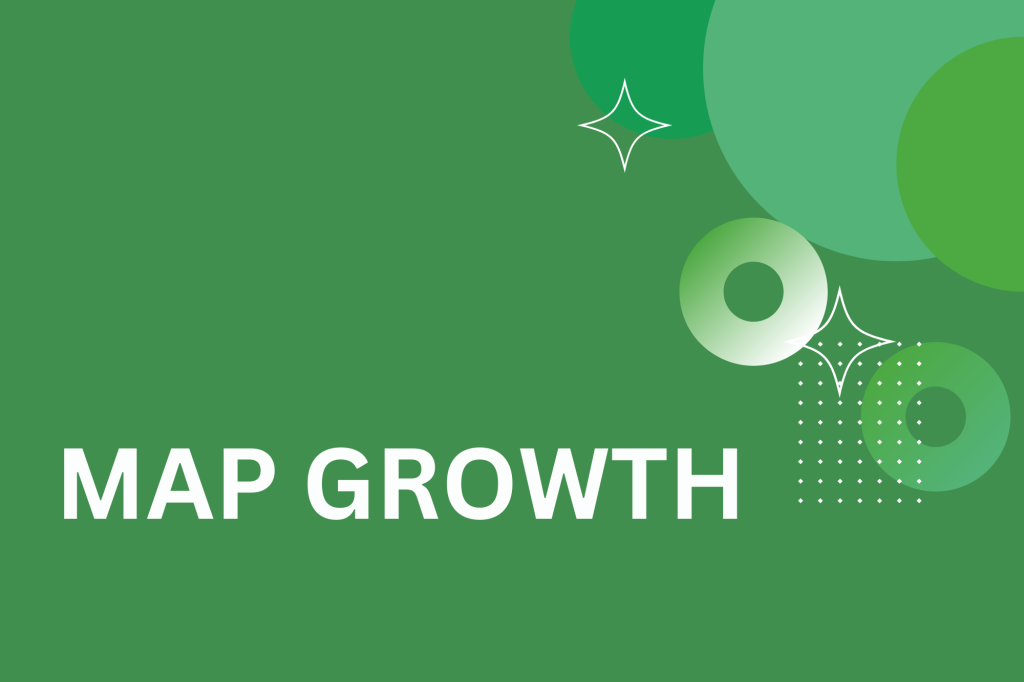
Omnibus Magazine Gladstone Memorial Essay Prize
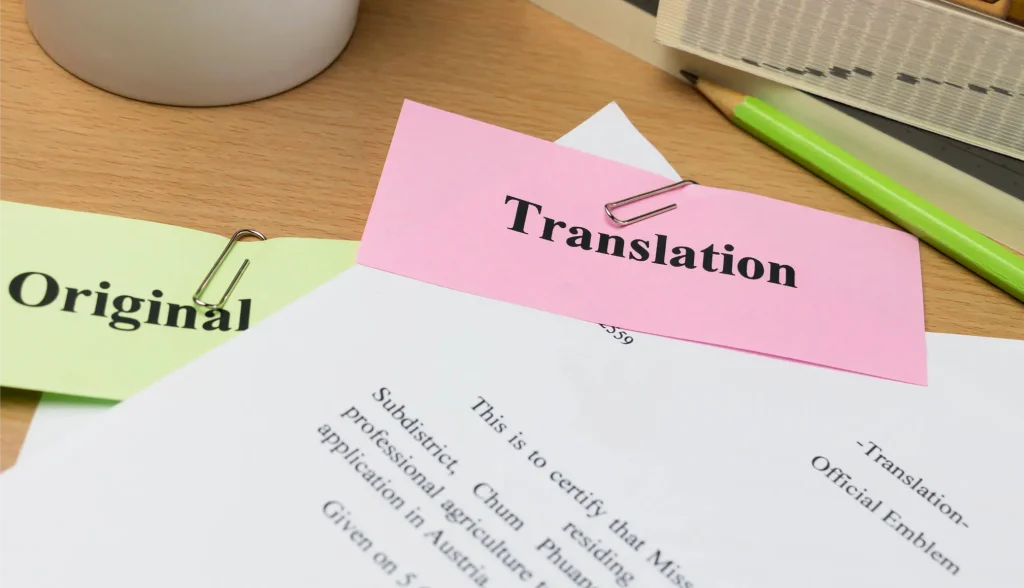
Omnibus Magazine Sam Hood Translation Prize

Columbia Undergraduate Law Review High School Essay Contest

Modeling the Future Challenge

Academic Decathlon
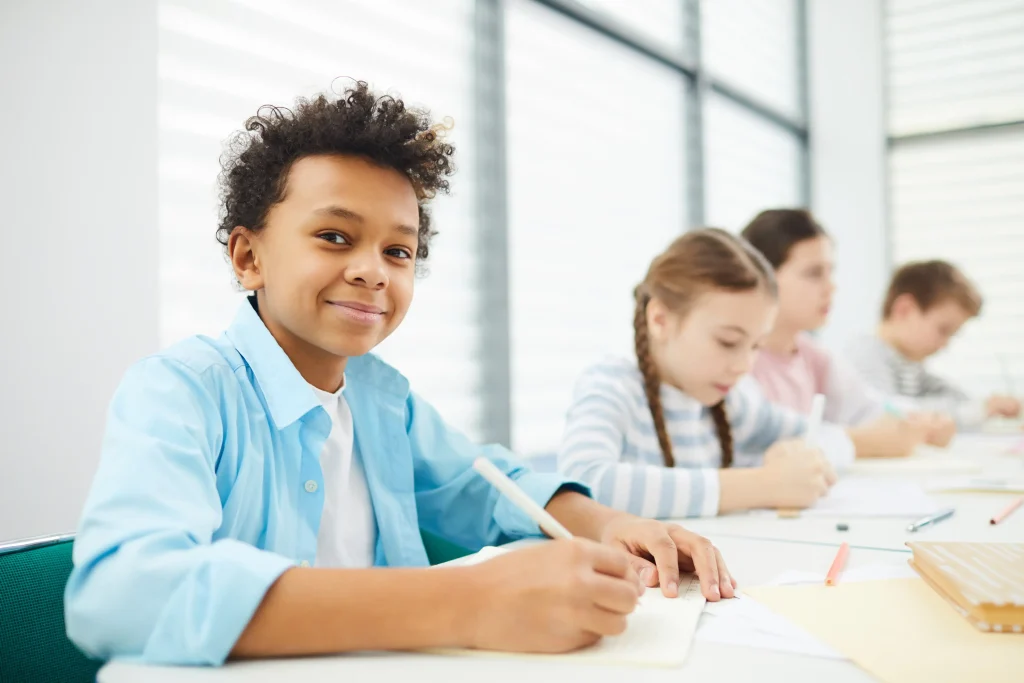
The Betty Award

Fitzwilliam College Essay Competition

Advantage Testing Foundation/Jane Street Math Prize for Girls
Aralia Education is an innovative online education platform for ambitious middle and high school students worldwide. Aralia’s instructors propel students forward by helping them build a strong foundation in traditional academic courses. They also actively engage and guide students in exploring personal interests beyond their school curriculum. With this holistic approach, Aralia ensures its students are well-prepared for college and equipped for success in their future careers.
- College Accelerator Program
- Comprehensive Introduction to High School
- Academic Empowerment Program
- Test Preparation Bootcamp
- Private Lessons
- Student Awards
- Competitions
Give us a call: +1 (603) 932 7897
Email us: [email protected]
Add us on WhatsApp:

- See us on twitter
- See us on instagram
- See us on facebook
- See us on linkedin
Medical Humanities & the Arts Program
Stanford storytelling and medicine scholars class of 2024, meet our team.
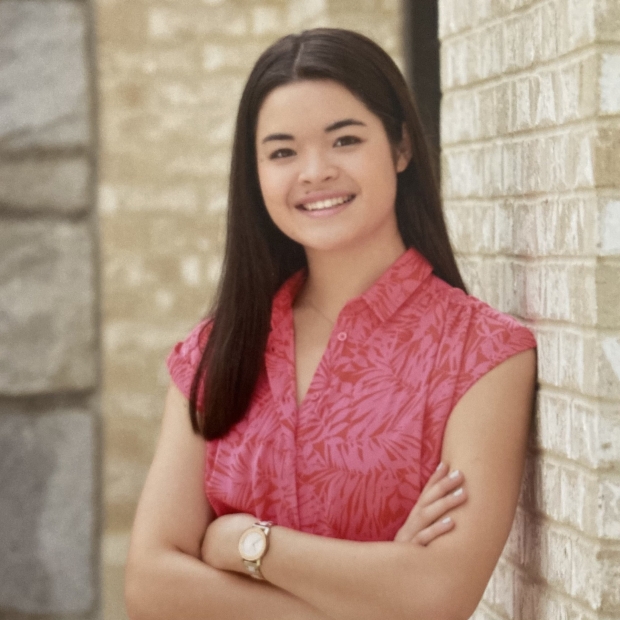
Originally from Atlanta, Georgia, Marit UyHam is a rising sophomore at Dartmouth College. She plans to study biology and hopes to attend medical school. At Dartmouth, Marit works in a biological anthropology lab which analyzes microfossils with a focus on prehistoric China. Outside of class, Marit is involved in multiple dance programs, and she plays violin with the Dartmouth Chamber Orchestra.
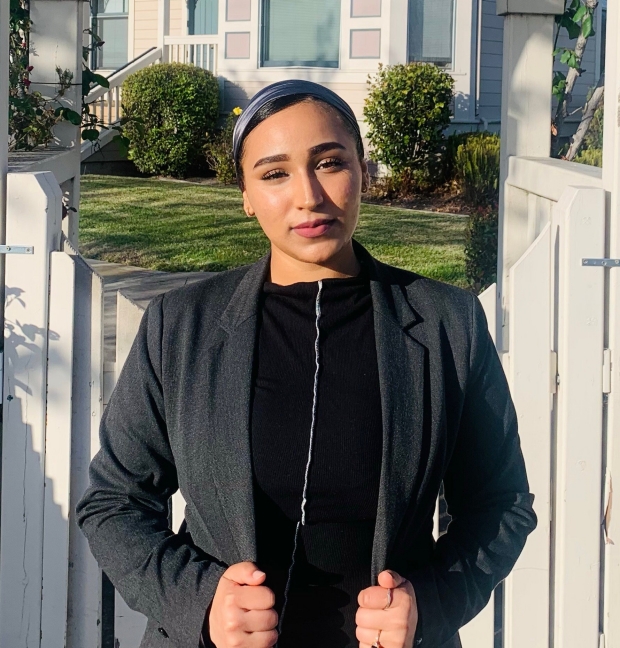
With over six years of experience in healthcare, Amal Sharif has dedicated her career to improving patient outcomes through innovative approaches. Having worked at Highland Hospital, a Level 1 trauma center in the East Bay, Amal has firsthand experience in high-pressure medical environments and understands the critical importance of effective communication and empathy in patient care. Amal holds a Mathematics, Psychology, and Economics degree from Laney College. Amal enjoys exploring her creativity through various artistic pursuits, such as pastel, and drawing.
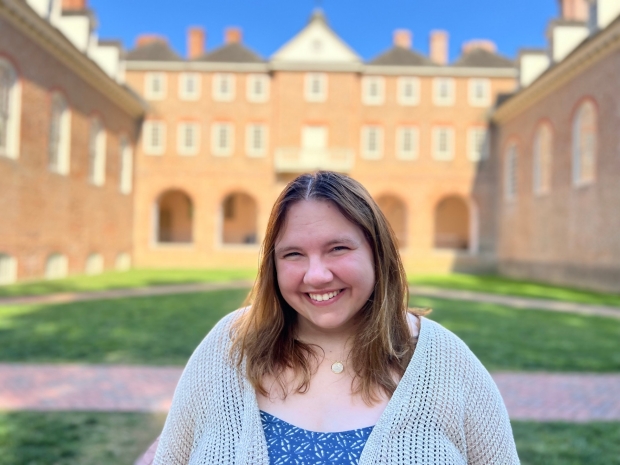
Halle Boroski is a senior at the College of William and Mary, finishing her degree in Neuroscience on the pre-medical track with a minor in Public Health and a concentration in Health, Society, and Wellness. Halle plans to pursue graduate school post-graduation before pursuing medical school. She is involved in W&M public health club, working at the admissions office and wellness center, and working in a research lab focused on learning and positive study techniques. In her spare time, Halle enjoys being with friends, reading, and walking in Williamsburg.

Meher Gandhi is pursuing her Master’s in Comparative Literature at University of California, Davis. She has a BA triple major degree in English, Psychology and Media and a diploma in folklore and cultural studies. Her interest in medical humanities, especially memory studies and cognitive poetics, guides her work in the intersections between literature and psychology. Her research internship with the Center for Memory Studies, IIT Madras bolstered in her the desire to move ahead in this direction. She also holds experience in publishing (including Penguin Random House India), literary festivals, and art spaces. Her other interests include writing and reading poems, teaching, and exploring art and architecture. She believes that her future research works will feature a trialogue between literature, psychology, and architecture.

Peter Park is a 4 th year medical student pursuing Psychiatry. He has a background in theatre and comedy improv and has integrated his interests in medicine and the arts through hosting local events for medical students to share their experiences on stage via Stethoscope Stage and HuMed Short Story Night in partnership with TCU Burnett School of Medicine. Additionally, he is collaborating with TCU in establishing the Narrative Medicine Consortium of Texas to unite Texas medical schools in increasing Narrative Medicine education. His work has been featured on The Nocturnists Podcast, MedMic.com, and Crohn's & Colitis Young Adult Network. Peter plans to pursue Psychiatry with interests in Child & Adolescent Psychiatry, Eating Disorders, and GI-adjacent Psychiatry.
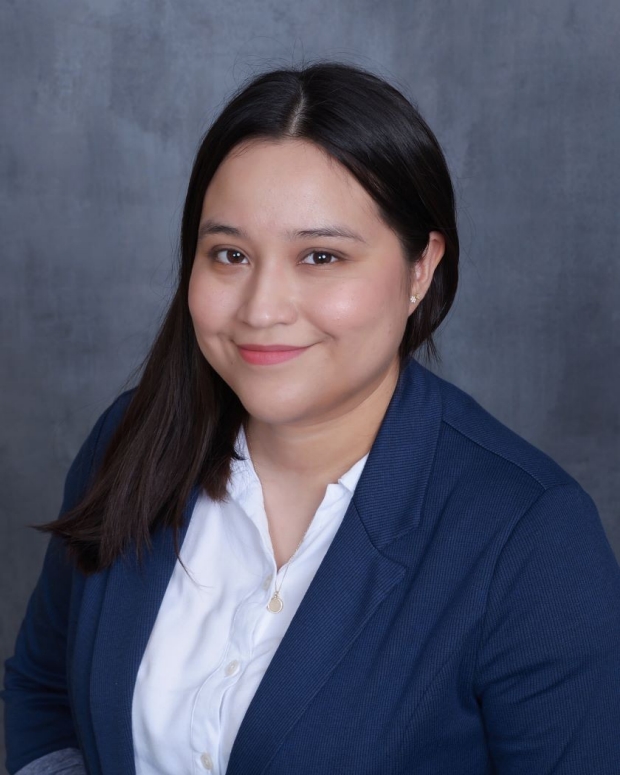
Keren Shafer is a rising MS1 at the John Sealy School of Medicine -UTMB Health-. She is pursuing a medical and master’s in public health degree as a stepping stone to becoming a pediatrician or OBGYN. She graduated with a Distinguished History degree with a double minor in Biology and Chemistry. Her interest in Historical writing includes women’s, Chinese, and medical history. She has presented her research at the College of Liberal and Fine Arts Conference at her Undergraduate institution; her most recent project was “Women in Medicine: A Look at Specialty Clusters.” She is now shifting towards immigrant narratives as a form of self-expression and ownership of her life experiences. Her hobbies include quilting, reading, and board games.
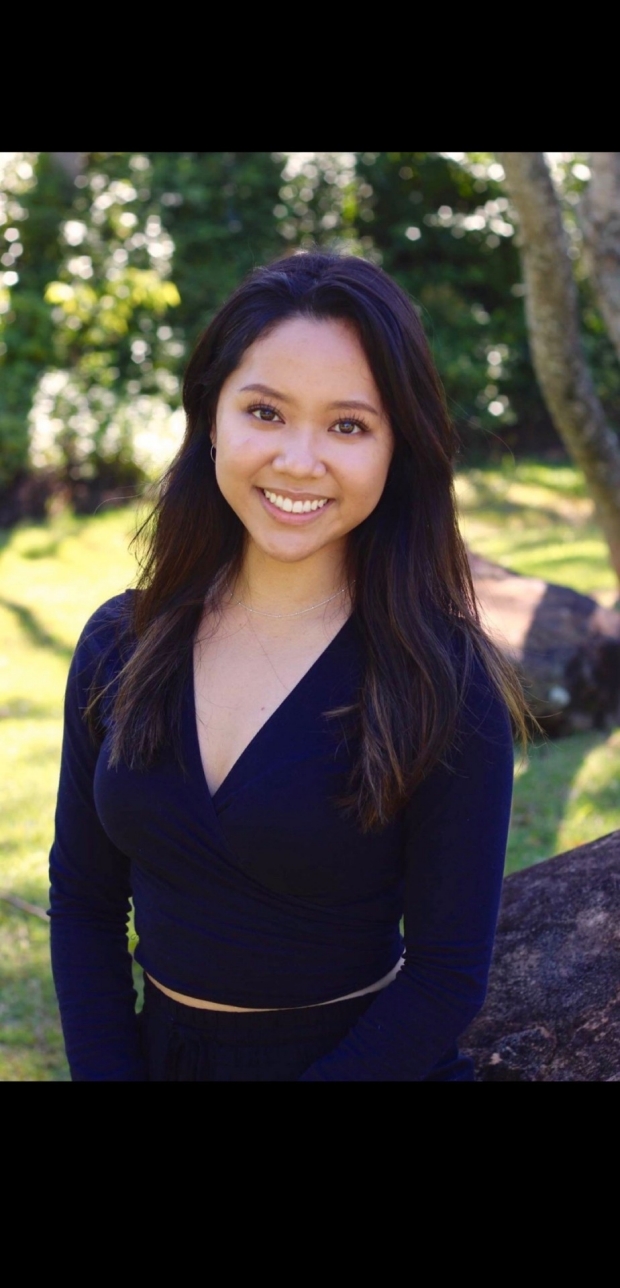
Tabitha Hiyane is an English literature student at UCLA and an Opinion columnist for the Daily Bruin . Holding a vested interest in the medical humanities, her archival research has explored how intimate narratives of embodiment, contextualized through health and illness, are both particularized and shared as part of the human condition - the very stories inscribed in the histories of our humanity. While continuing to grow as a writer, she plans on applying to medical school, aiming to discover and put into practice what it means to care for another in all aspects of being.
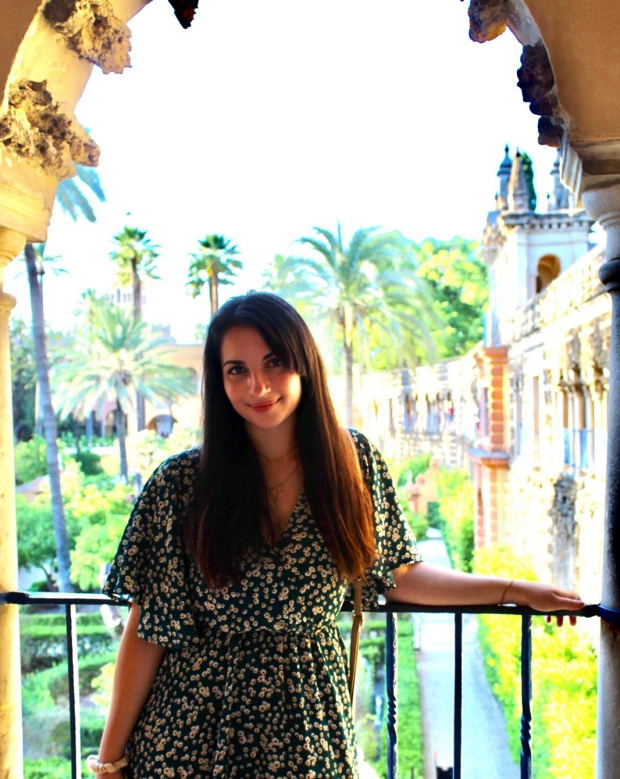
Nada Kaissieh holds a Masters of Bioethics from Johns Hopkins University and is currently advancing her medical education at the University of Louisville School of Medicine, working towards her MD. With over six years of dedicated involvement in mental health advocacy, she champions for the betterment of psychiatric care. Combining her expertise in writing and photography, she endeavors to reshape community and cultural perceptions of mental illness. Nada spearheads an ongoing project aimed at integrating mental health education into local elementary schools, striving to increase visibility and accessibility to support and resources.

Soo Yeon (Jean) Chun is a rising junior at Stanford University planning to major in Symbolic Systems on the Neuroscience track. Since middle school, she has been fascinated by the creative, emotional, and linguistic capabilities of the mind. An aspiring psychiatrist and writer, she is deeply interested in the power of creative writing—particularly poetry —to guide and heal. In her free time, she enjoys drumming, discovering new music, and reading and writing poetry.

Maria Luiza Fernandes is a sophomore undergraduate student from Brazil. She is graduating in Pharmacy and plans to become a neuroscientist. Her research interests cover a range of disciplines under the umbrella of the pharmaceutical profession and cognitive science. As an Immerse Education fellow, over the past year she has worked on a research project on Alzheimer's disease, including the applications of gene editing in the treatment of pathologies associated with the nervous system. She is currently involved in a learning community on psychopathologies and an executive member of FLOTA, a project aimed at developing young female leaders around the Americas.
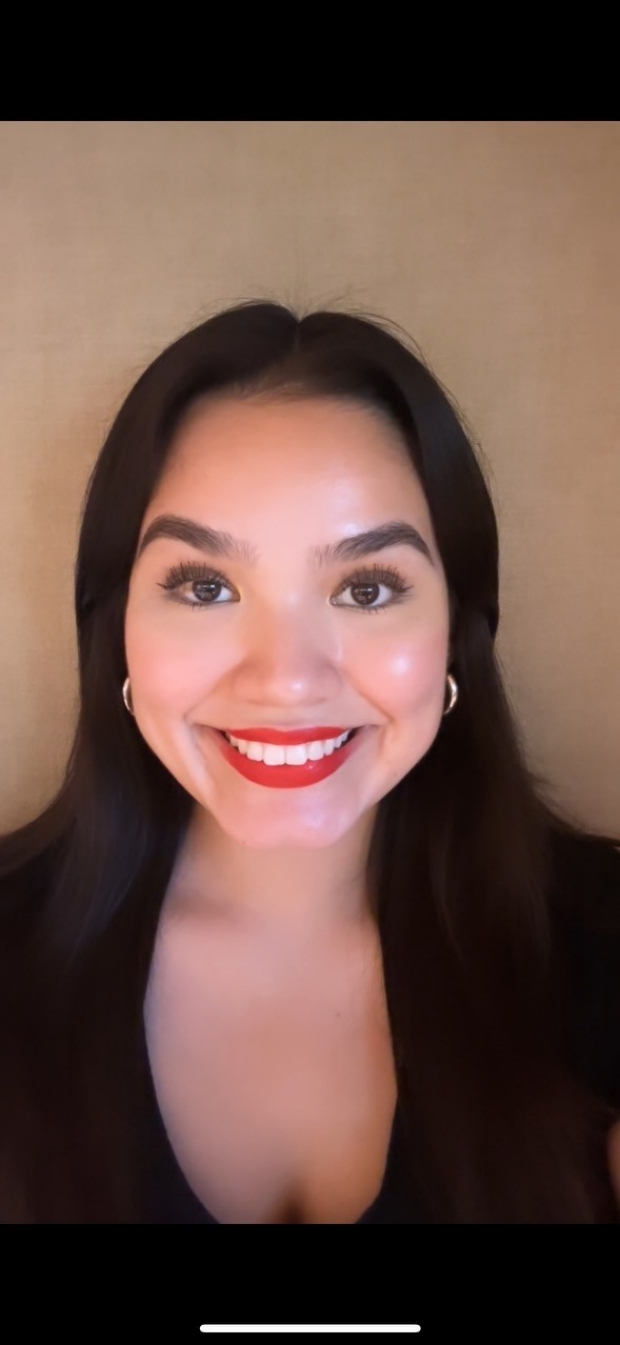
Robinrenee Hamre is a sophomore undergraduate student at UCLA, majoring in Biology. She is a Native American student, originally from Anaheim, California. Robinrenee is passionate about studying Neonatology and pursuing a career in the medical field, in hopes to become a NICU Doctor. Some of her hobbies are writing, running, and reading poetry.
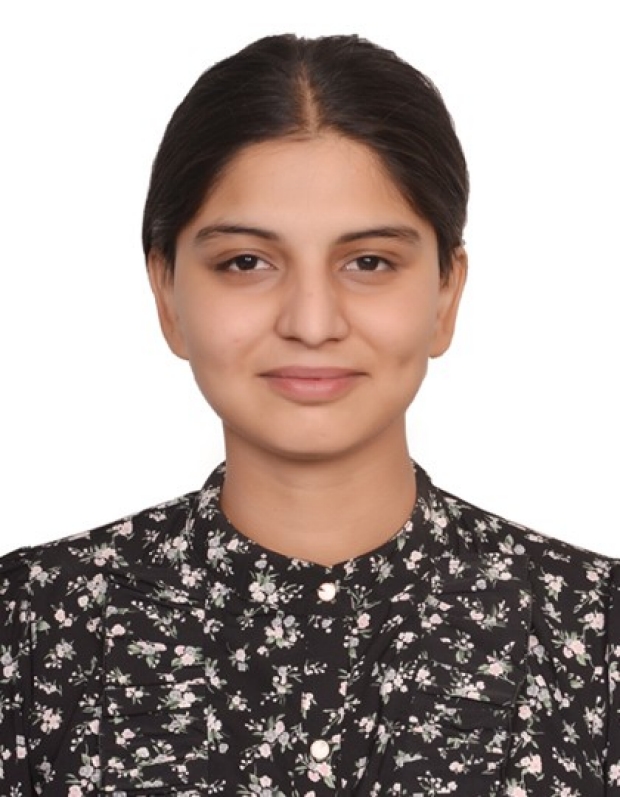
Mehakpreet Kaur Saggu , a Pearson Scholar at the University of Toronto, is passionately devoted to making neuroscience and psychology approachable for everyone. Her journey into this field began with her love for literature, which sparked a sense of wonder and fascination with Oliver Sacks, and this ongoing saga of inspiration has continued to shape her work. From conducting research in the Decision Neuroscience Lab to helping establish a new Cognitive Science undergraduate journal, Mehakpreet's dedication to simplifying the complexities of the human brain is evident. She is grateful for the opportunity to merge her academic pursuits with her goal of bringing advanced science closer to public understanding. As a researcher, author, and advocate, she endeavors to share the wonders of the human brain, hoping to enlighten and serve the broader community.

Jess Skyleson (they/them) is a former aerospace engineer and Ayurvedic practitioner who began writing poetry after being diagnosed with stage IV cancer at age 39. Currently in remission, they’re now pursuing an MFA in Digital + Media at Rhode Island School of Design, with particular interests in narrative medicine, computational poetry, and sonic art. Their poetry has appeared in journals and anthologies throughout the US and UK, and they have been awarded the 2022 Hippocrates Poetry and Medicine Prize, an Honorable Mention in the Tor House Poetry Prize, and were a finalist for the Yemassee Poetry Prize and Kalanithi Writing Award. They are presently exploring the integration of the body, poetry, and sound, and one of their sound poetry projects was recently selected for exhibition in the New Media category at Brown University’s Ivy Film Festival. Jess facilitates creative writing and art workshops for patients, medical providers, and caregivers, and they are hoping to develop collaborative pathways across art mediums and personal/professional experiences of medicine.
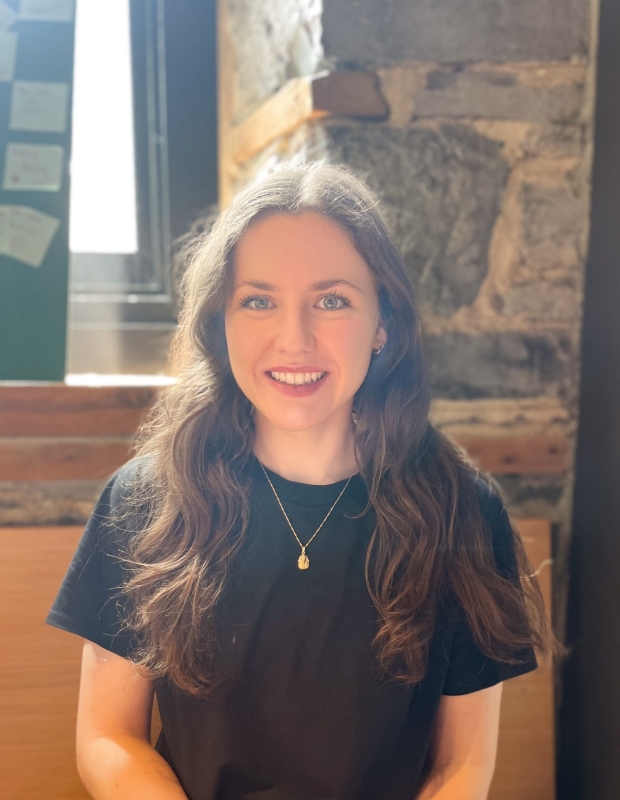
Emily Koseck is a medical student at Queen’s University in Canada. She is currently working at Toronto Metropolitan University on the development of a new medical school with an innovative approach to education that will meet the current pain points in the healthcare system. Her interests include improving healthcare delivery and outcomes through bioethics, trauma-informed care, and addressing systemic biases. Emily enjoys being active, spending time outdoors, and volunteering at a wildlife rehabilitation centre.
Shreya Gunda
Grace Reed
Sohini Dasgupta

Realizing the benefits of human genetics and genomics research for people everywhere.
ASHG Announces 2024-2026 ASHG-NHGRI Genomics and Public Service Fellows
For Immediate Release: Monday, May 20, 2024, 10:00 am U.S. Eastern Time
Media Contact: Kara Flynn, 202.257.8424, [email protected]
Rockville, MD – The American Society of Human Genetics (ASHG) is excited to announce the 2024-2026 ASHG-National Human Genome Research Institute (NHGRI) Genomics and Public Service Fellows . Ten fellows have been selected as part of a new expanded program for graduate and post-baccalaureate fellowships continuing two prestigious graduate-level fellowships in genetics and public policy, genetics education and engagement, and adding a third fellowship in genomics communications. The new post-baccalaureate fellowship provides additional fellows training opportunities at an earlier stage of their careers.
“On behalf of the ASHG community, I extend a warm welcome and congratulations to this first cohort of fellows within the expanded program,” said ASHG President Bruce D. Gelb, MD. “I am thrilled that we have continued our meaningful partnership with NHGRI to grow the fellowship program and support geneticists at the early stage of their careers. As the largest interdisciplinary community of human genetics researchers, it is imperative that ASHG recognizes and supports diverse career paths that inform and advance genomics and its applications. I look forward to the great work they will contribute to public policy, education and engagement, science communications and scientific administration.”
In June 2023, ASHG announced a five-year contract of $7.1 million from NHGRI, part of the National Institutes of Health (NIH), which will continue its close partnership and create an expanded and more impactful Genomics and Public Service Fellowship Program.
“NHGRI is delighted to partner with ASHG in establishing the Genomics and Public Service Fellowship Program and welcoming our inaugural class of fellows,” said NHGRI Director Eric Green, MD, PhD. “The future of genomics depends on recruiting and training a rainbow of career professionals, including those with expertise in education, communications, policy, scientific programming and beyond. We are excited to help provide the next generation of genetics and genomics professionals with experiences and exposures that will help them navigate their career journeys.”
Below are biographies of the 2024-2026 ASHG-NHGRI Genomics and Public Service Fellows.
Jacqueline Cohen, ASHG-NHGRI Genomics Communications Fellow
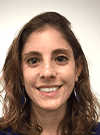
Jacqueline received her Master of Public Health in Public Health Genetics with a Certificate in Global Health from the University of Pittsburgh Graduate School of Public Health in Pittsburgh, PA and earned a Bachelor of Science in Physiology and Neuroscience from the University of California, San Diego in La Jolla, CA. She worked with the All of Us Pennsylvania research program doing community outreach and engagement in underserved communities and interned at the Centers for Disease Control and Prevention (CDC) Office of Genomics and Precision Public Health creating the content for their pharmacogenomics webpage. More recently, she worked at the University of Pittsburgh as a Program Implementation Specialist, focusing on improving access to behavioral and mental healthcare in rural counties. Jacqueline is passionate about improving genomic health communication to influence informative and equitable use of genomic research and technologies.
Malia Jennings, ASHG-NHGRI Post-Baccalaureate Genomics Analyst Fellow, NHGRI
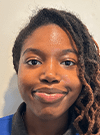
Malia Jennings is a recent graduate of Fisk University in Nashville, TN, earning a Bachelor of Arts in Biology. Throughout her undergraduate tenure, Malia engaged in diverse research endeavors, ranging from polymeric biomaterials to exploring the effects of altering circadian rhythms on rodents. Her fascination with genetics blossomed during an RNA-sequence analysis project at the University of Illinois’s Carl R. Woese Institute for Genomic Biology, where she investigated the genetic response of soybean cultivars infected with soybean cyst nematode. Delving into the cryptic maze of genomics through bioinformatics, Malia merges her interests in biology and data science. As an NHGRI fellow, she aspires to delve deeper into genomic research to propel advancements in public health.
Mike Lopez, ASHG-NHGRI Post-Baccalaureate Genomics Analyst Fellow, NHGRI
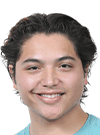
Mike Lopez is a graduate of New Mexico State University in Las Cruces, NM, graduating in fall 2023 with a Bachelor of Science in Computer Science, along with minors in Biology and Bioinformatics. His research interest was sparked in his sophomore year, particularly in bioinformatics and genomics. This curiosity led him all across the country, connecting with brilliant minds globally. It has empowered him to tackle scientific challenges head-on, diving deep into biology, bioinformatics, data science, and machine learning. Now, he is thrilled to join ASHG and NHGRI as a Post-Baccalaureate Genome Analyst.
Sofia Martín, ASHG-NHGRI Post-Baccalaureate Genomics Analyst Fellow, NHGRI
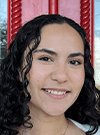
Sofia Martín is an undergraduate student at St. Edward’s University in Austin, TX, studying Biology with a concentration in Allied Health professions. She has conducted independent research in St. Edward’s Microbiology and Developmental Genetics labs. Most recently, she has completed a medical research internship with the Department of Nephrology at Washington University in St. Louis, MO, where she used light sheet fluorescence microscopy to identify patterns of structures in human kidney tissue. Sofia has a career interest in Genetic Counseling specializing in oncology and hereditary cancer screening. She feels grateful for the opportunity to work on a multitude of NHGRI projects to expand her knowledge of genetics and genomics.
Maya Montgomery, ASHG-NHGRI Post-Baccalaureate Genomics Analyst Fellow, ASHG
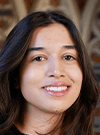
Maya Montgomery is an incoming fellow from Chapel Hill, NC. She received her Bachelor of Science in Neuroscience and Global Health from Duke University in Durham, NC, and after this fellowship, will go on to pursue a JD at Columbia Law School through the Columbia Leadership Experience Admission Deferral (LEAD) Fellowship. Her research experience includes exploring challenges to gene therapy access, implementing global mental health interventions, studying genetic bases of neurodevelopmental disorders, and expanding healthcare access everywhere from North Carolina to Kenya. She is interested in patient advocacy, improving genetics education, and promoting equitable access to healthcare and advances in genetic technology and research.
Jessica Reinach, ASHG-NHGRI Post-Baccalaureate Genomics Analyst Fellow, NHGRI
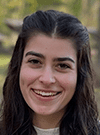
Jessica Reinach recently graduated from the University of Michigan in Ann Arbor, MI with a Bachelor of Science in Neuroscience and French. Her honors thesis investigated the roles of the lateral hypothalamus and ventral pallidum in reward and how these impact affective disorders. Previously, she explored the mechanisms of cell death in HPV-positive cancers, and currently works with a team through the Immersion Science Program, Philadelphia to create community-based educational interventions for HPV vaccination. Examining the genetic basis and geographical variation of HPV infection has piqued her interest in the role of genetics and genomics in contemporary medicine and research. In the future, Jessica hopes to combine her passions for medicine, research, and public health through an MD, PhD or other graduate degree.
Elizabeth Roy, ASHG-NHGRI Genetics and Public Policy Fellow
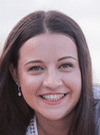
Elizabeth Roy is a Master of Public Health candidate in the Human Genetics department at the University of Pittsburgh School of Public Health in Pittsburgh, PA. While completing their degree, Elizabeth volunteered with the advocacy organization Facing Our Risk of Cancer Empowered (FORCE) to write plain language adaptations of clinical trial criteria for people and families with hereditary cancer. She concurrently completed research on the efficacy of community engagement in environmental policymaking, winning the master’s level school award for ‘Translation & Application of Research to Public Health Policy & Practice’. Elizabeth is completing their master’s essay on equity in insurance coverage of fertility services for people with sickle cell disease. She earned a Bachelor of Arts in Neuroscience at Skidmore College in Saratoga Springs, NY. She is thrilled to serve as the 2024-2026 ASHG-NHGRI Fellow for Genetics and Public Policy and build a career engaging in the policymaking process with sound incorporation of equitable genomics research.
Gabrielle Villard, ASHG-NHGRI Post-Baccalaureate Genomics Analyst Fellow, NHGRI

Gabrielle Villard is pursuing a Master of Science in Human Genetics and Genomics at Southern California University of Health Sciences in Whittier, CA, building on a Bachelor of Science from Trinity Washington University located in Washington, D.C. Following recognition as a Clare Boothe Luce Scholar, she developed a passion for genetics and helping others. She is committed to bridging the gap in medical genetics for marginalized communities as well as increasing the comprehension of genetics to people outside the science community. Outside of school she curates events and volunteers as a crisis counselor to build on her compassion and crisis intervention skills. Motivated by a commitment to helping others, Gabrielle is dedicated to achieving health equity in the world of medical genetics.
Camerun Washington, ASHG-NHGRI Genetics Education and Engagement Fellow
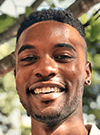
Camerun Washington, MS, CGC, joins ASHG from the Greenwood Genetic Center in Greenville, SC, where he was a clinical genetic counselor focused on pediatric and adult neurogenetics. While at the Genetic Center, Camerun actively engaged in initiatives related to outreach, mentoring, inclusion and equity, research, and clinical care. He earned a Bachelor of Arts in Modern Languages (French) and Bachelor of Science with distinction in Biology from Winthrop University in Rock Hill, SC, as well as a Master of Science degree in Genetic Counseling from Virginia Commonwealth University in Richmond, VA. He is a certified genetic counselor with the American Board of Genetic Counseling. A teacher at heart, Camerun is excited to learn new ways to connect with the general public and encourage young people to join the genetics and genomics workforce, with the long-term goal of improving the quality of care for minoritized populations. As a first-generation college student, Camerun owes the support charting this path to family, champions, and mentors. He is overjoyed to be an Education and Engagement Fellow and looks forward to being part of the future of genetics and genomics education.
Alison Wilcox, ASHG-NHGRI Post-Baccalaureate Genomics Analyst Fellow, ASHG
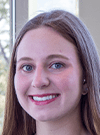
Alison Wilcox is a recent graduate of St. Olaf College in Northfield, MN with a BA in Biology and a concentration in Family Studies. With aspirations to pursue a career in genetic counseling or public health, she eagerly anticipates the opportunities that the fellowship program at ASHG will provide to explore and refine her professional and personal journey. Passionate about advocacy pertaining to genetic health, she aims to empower individuals to make informed decisions about their genetic well-being. She is committed to fostering diversity, equity, and inclusion within the realm of genetics, recognizing the critical importance of ensuring accessibility and representation for all. Alison is determined to contribute meaningfully to the field of genetics, advocating for compassionate and comprehensive healthcare practices that prioritize the needs and rights of every individual.
About the American Society of Human Genetics (ASHG)
Founded in 1948, the American Society of Human Genetics is the primary professional membership organization for human genetics specialists worldwide. Its community of nearly 8,000 members include researchers, academicians, clinicians, laboratory practice professionals, genetic counselors, nurses, and others with an interest in human genetics. The Society serves scientists, health professionals, and the public by providing forums to: (1) share research results through the ASHG Annual Meeting and in The American Journal of Human Genetics and Human Genetics and Genomics Advances ; (2) advance genetic research by advocating for research support; (3) educate current and future genetics professionals, health care providers, advocates, policymakers, educators, students, and the public about all aspects of human genetics; and (4) promote genetic services and support responsible social and scientific policies. For more information, visit: http://www.ashg.org .
6120 Executive Blvd, Suite 500 | Rockville, MD 20852 | 301.634.7300 | [email protected] | www.ashg.org
Connect with ASHG on X (@GeneticsSociety) | Facebook | LinkedIn
ASHG uses cookies to provide you with a secure and custom web experience. Privacy Policy

COMMENTS
ASHG is proud to support National DNA Day through the Annual DNA Day Essay Contest. DNA Day commemorates the completion of the Human Genome Project in April 2003 and the discovery of the double helix of DNA in 1953. This contest is open to students in grades 9-12 worldwide and asks students to examine, question, and reflect on important ...
Welcome to the 2021 DNA Day Essay Contest submission site! The deadline to submit all essays is Wednesday, March 3, 2021 at 5:00 pm U.S. Eastern Time. Questions? [email protected]. Submit Essay. To submit your essay (s), you will need to create an ASHG account. This is not a membership account and does not require payment. Submission Instructions.
Essays should be 750 words maximum. Winners and honorable mentions are announced on Friday, April 24, 2020. This contest is open to students in grades 9-12 worldwide and asks students to examine, question, and reflect on important concepts in genetics. Essays are expected to be well-reasoned arguments indicative of a depth of understanding of ...
🏆 Congratulations to the winners of the #DNADay24 Essay Contest! Congratulations and Well done to our winners and honorable mentions! ... American Society of Human Genetics 10,168 followers 5h ...
Login with ASHG. Welcome to the 2020 DNA Day Essay Contest submission site! The deadline to submit all essays is Wednesday, March 4, 2020 at 5:00 pm U.S. Eastern Time. To submit your essay (s), you will need to create an account on the ASHG website. You will be asked to sign-in or create an account when you follow the essay submission link.
The "Father of Genetics," Gregor Mendel, was born 200 years ago in northern Moravia (now Czechia). His experiments with pea plants led to observations and conclusions that became fundamental principles of genetic inheritance. These principles include: 1) Each organism has two versions (or alleles) of each gene; 2) One allele is inherited ...
CollegeXpress Scholarship Profile: The American Society of Human Genetics DNA Day Essay Contest. Search For More Scholarships And Colleges. Join CollegeXpress. ... Sponsored by: American Society of Human Genetics Favorite. Apply Online. $1,000. Max. $100. Min. 13. Available.
The American Society of Human Genetics announced the winners of the fourth annual National DNA Day Essay Contest, which serves to educate students and teachers about important concepts in genetic ...
DNA Day commemorates the completion of the Human Genome Project in April 2003 and the discovery of the double helix of DNA in 1953. In celebration of DNA Day, the American Society of Human Genetics hosts Annual DNA Day Essay Contest. 2024 Question: Many human diseases have a genetic component.
DNA Day Essay Contest: Applications closed on March 6, 2024. ... The American Society of Human Genetics (ASHG) and the National Human Genome Research Institute (NHGRI) co-sponsor the Genetics and Public Policy Fellowship to give genetics professionals an opportunity to contribute to the policy-making process. The fellowship is designed as a ...
The American Society of Human Genetics -. Login with ASHG. Accessing your Round 2 essays: Log in to the ASHG portal through the button on the left side of the screen labeled "Login with ASHG". Your username is the email address associated with your membership. Select "My Reviewing Assignments" from the table on the left side of the screen.
The American Society of Human Genetics (ASHG), founded in 1948, is a professional membership organization for specialists in human genetics. As of 2009, the organization had approximately 8,000 members. ... Since 2007, the Society has organized the annual DNA Day Essay Contest for high school students.
In 2023, The American Society of Human Genetics celebrates its 75th anniversary! We want to kick off the festivities with you, the next generation of human geneticists. The theme of our celebrations is "One Humanity, Many Genomes.". In your essay, explain what "one humanity, many genomes" means to you. Please be sure to include:
Halle Boroski is a senior at the College of William and Mary, finishing her degree in Neuroscience on the pre-medical track with a minor in Public Health and a concentration in Health, Society, and Wellness.Halle plans to pursue graduate school post-graduation before pursuing medical school. She is involved in W&M public health club, working at the admissions office and wellness center, and ...
For Immediate Release: Monday, May 20, 2024, 10:00 am U.S. Eastern Time Media Contact: Kara Flynn, 202.257.8424, [email protected] Rockville, MD - The American Society of Human Genetics (ASHG) is excited to announce the 2024-2026 ASHG-National Human Genome Research Institute (NHGRI) Genomics and Public Service Fellows.Ten fellows have been selected as part of a new expanded program for graduate ...